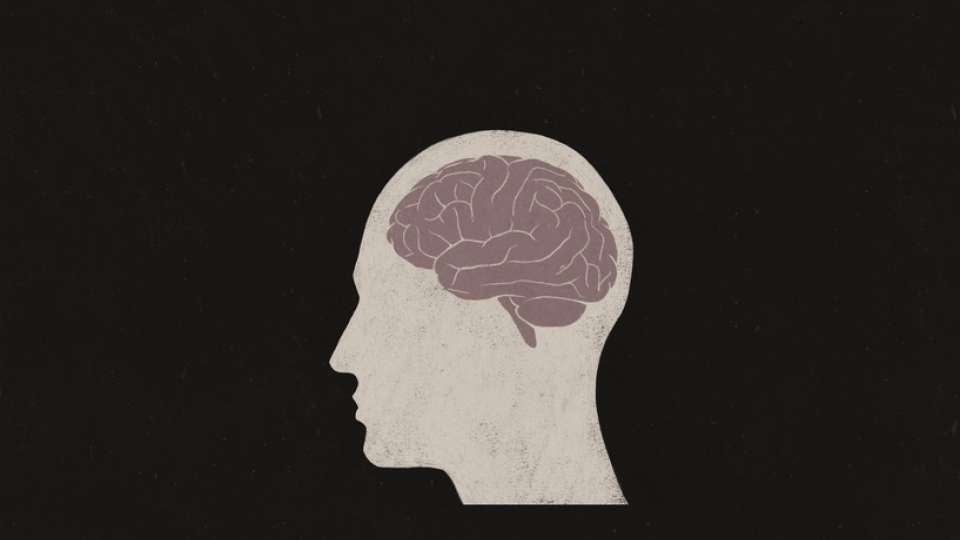
As we age, it can be scary to think about the dozens of possibilities of potential health changes. And among the variety of diagnoses that may occur in adulthood, it can be particularly hard to prepare for life-altering diseases such as Alzheimer's disease or dementia.
Unfortunately, these diseases aren’t just limited to older adults— some people are faced with seemingly early diagnoses of degenerative disorders, including one called frontotemporal dementia.
Wait, you can get dementia when you’re young?
Yes, but that doesn’t mean it’s likely. The National Institute of Neurological Disorders and Stroke mentions the onset is more common in adults younger than 60, but it is still an extremely rare form of the disease. In 15-40% of those diagnosed with a frontotemporal disorder that leads to dementia, a genetic or hereditary link can be found.
So, what is a frontotemporal disorder?
Frontotemporal disorders (FTD) can include a type of dementia caused by a family of brain diseases called frontotemporal lobal degeneration. FTDs occur when neurons in parts of the frontal and temporal lobes — the parts of brain that normally control thinking, behavior, executive function and language — are damaged.
If you have a family history of Alzheimer’s disease or dementia, especially if multiple family members developed symptoms before the age of 60, it may be worth talking to your doctor about the possibility of a future diagnosis. However, there’s no call for concern unless your family or loved ones notice you exhibiting symptoms. Patients typically don’t notice symptoms themselves but are rather alerted to changes in behavior from family. If there is a familial history, genetic tests may be an option for early detection.
What are the symptoms of frontotemporal disorders?
Common symptoms of FTD include:
- Problems with executive functioning (thinking through, prioritizing and self-monitoring things throughout the day)
- Compulsive eating
- Language changes such as aphasia, the loss of ability to express or understand speech
- Apathy or other emotional changes
- Movement changes including tremors or clumsiness
Most cases of dementia occur after age 60; however, frontotemporal dementias can appear in younger people, typically between the ages of 45 and 64.
Remember: Just because you or a loved one may develop a symptom doesn’t mean you have dementia. Check in with your doctor before you start to worry (or fall down the Google rabbit hole).
How are frontotemporal disorders diagnosed?
Because there is no single test to diagnose FTDs, a team of neurologists, psychologists or psychiatrists will analyze the condition by performing various assessments.
“A clinician would want to hear about how your symptoms started and changed over time, review your medications and family history, and perform a cognitive and physical assessment,” says Dr. Kimiko Domoto-Reilly, a neurologist at the UW Medicine Memory and Brain Wellness Center. “You might be advised to undergo further testing such as a comprehensive neuropsychological evaluation, structural or functional brain scans, or a spinal tap.”
If you notice a loved one might be showing symptoms, no need for alarm bells yet. Because it is extremely rare, it’s possible there might be something else causing the symptoms. The best way to know is to talk with a doctor.
“If you or someone who knows you well is concerned about progressive changes in thinking, language or behavior, it would be important to discuss with your primary care physician, and consider an evaluation at the Memory and Brain Wellness Center clinic,” says Domoto-Reilly. “If we diagnose a neurodegenerative dementia such as FTD, our team will work with you and your family to formulate a care plan, including symptomatic interventions and support resources."
In the rare case of a frontotemporal dementia diagnosis, what’s next?
Unfortunately, there are no current treatments that can slow the progression of the disease, but there are many treatments that can help with the symptoms. Drugs that treat depression and anxiety can help create a more comfortable life after diagnosis. Engaging in varied physical, social and cognitive activities can help maintain brain health.
As the dynamics of relationships start to change, it can be hard to shift from being an independent adult to needing care or caretaking. In the moments in which it gets hard, know this: There are ways to get help.
If you or a loved one is met with a diagnosis of a frontotemporal disorder, it can be frustrating and scary. There are resources for those who are newly diagnosed, as well as resources for family members.
“There is ongoing research to understand FTD and to hopefully identify curative treatments,” Domoto-Reilly says.
It may not be possible to predict how the diagnosis of a frontotemporal disorder will change the life of you or your family. But it's possible to plan ahead for future medical decisions and discover ways to live well with a progressive disease, within a community of support.

 Healthy ideas for your inbox
Healthy ideas for your inbox





